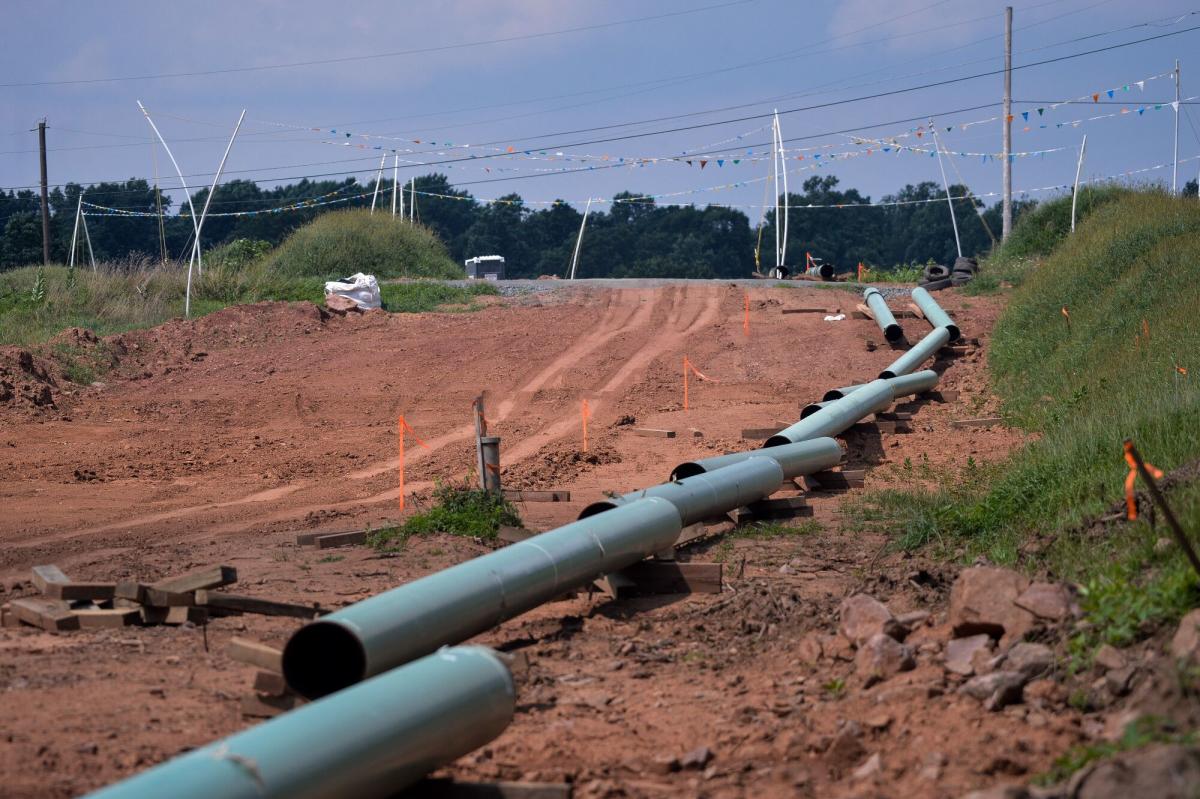(Bloomberg) — A series of legal battles in Louisiana have delayed construction of pipeline projects worth more than $2 billion in the state. Yet the lawsuit didn’t come from environmentalists: it was led by one of the largest natural gas pipeline operators in the US.
Most read from Bloomberg
In recent months, Energy Transfer LP has been fighting in court to stop rivals from building pipelines to transport gas to Gulf Coast export terminals. The industry giant, co-founded by Texas billionaire Kelcy Warren, argued that projects from Williams Cos., DT Midstream Inc. and Momentum Midstream, by crossing under its own channels, would infringe on its right of way and that the companies had not taken sufficient steps to ensure that they can safely pass its own pipelines.
On Tuesday, Momentum and Energy Transfer said they had resolved their dispute, allowing Momentum to proceed with its project to ship gas from the Haynesville shale basin in Louisiana and Texas to the Gulf Coast.
DT Midstream found an alternative to crossing Energy Transfer’s pipeline, but the legal battle continued. In April, an appeals court ruled in favor of DT Midstream.
An Energy Transfer victory would have made it “nearly impossible” for some pipeline projects to move forward, Louisiana Gov. Jeff Landry wrote in a filing in November during his time as attorney general. Such a precedent could jeopardize an industry already desperate for pipeline expansion.
The dispute between Energy Transfer and Williams continues.
The fighting in Louisiana, which has more miles of pipeline per capita than anywhere else in the country, comes at a time when U.S. natural gas consumption is expected to rise.
Utilities are bracing for the biggest increase in energy demand in a generation thanks to artificial intelligence data centers, computer chip factories and a growing number of electric vehicles. Part of that extra energy will come from wind and solar energy. But a significant part will come from gas-fired power stations.
While environmentalists warn that new pipelines will prolong America’s dependence on fossil fuels, industry leaders say the economy will suffer without them. Goldman Sachs Group estimates that the country will need to increase pipeline capacity by as much as 23% at a cost of nearly $25 billion to meet demand by 2030.
If state and federal officials can’t find ways to make it easier to permit and build pipelines, the outcry from utilities, technology companies and others will be significant, Williams CEO Alan Armstrong warned during a recent call with analysts.
“The scream is going to be pretty loud,” Armstrong said during the phone call.
Still, pipelines have become difficult to build, especially if they cross state lines. In the face of political and legal challenges over the past decade, a series of major projects have begun, including TC Energy Corp.’s Keystone XL, Dominion Energy Inc.’s Atlantic Coast gas pipeline. and Duke Energy Corp. and Williams’ Constitution project. .
Part of the reason pipelines are so difficult to build is that they require a litany of federal and state permits that are vulnerable to lawsuits. Louisiana and Texas are among the few states where developers have been able to advance projects in recent years, in part because officials there have not aggressively used the federal Clean Water Act and other measures to block projects in the way they have been stymied in recent years . Northeast.
Energy Transfer argued in its lawsuits that the three companies had not provided sufficient information to determine whether the crossings will be safe.
“We will continue to honor these requests until we are able to review all relevant information to ensure the safety of our pipelines and the landowners we pass through,” Energy Transfer spokeswoman Vicki Granado said in an email .
It is “extremely rare” for a pipeline developer to use the strategy that Energy Transfer uses to block competitors, Chad Zamarin, the executive vice president of corporate strategic development at Williams, said in an interview.
“We have literally hundreds of thousands of miles of pipelines crossing each other across the country,” he said.
Williams and the others argued that Energy Transfer, which operates a vast pipeline network in the region, is trying to shut them out. A subsidiary of Momentum Midstream said in a November lawsuit that the company “blatantly and openly engages in anticompetitive conduct.”
Last week, a parish court judge ruled in favor of Williams at seven border crossings in Beauregard Parish. And in another case, an appeals court ruled that Energy Transfer failed to prove that “safety was a real problem” and instead said the company appeared to be trying to “get a ‘commercial’ advantage from the crossing. ”
Energy Transfer, meanwhile, rejects the idea that it is trying to stifle competition.
“Our top priority is and remains the safety of our assets,” Granado said.
(Corrects the status of pipeline projects in the first and fourth paragraphs and the status of lawsuits in the second, third, and fourth paragraphs.)
Most read from Bloomberg Businessweek
©2024 BloombergLP







